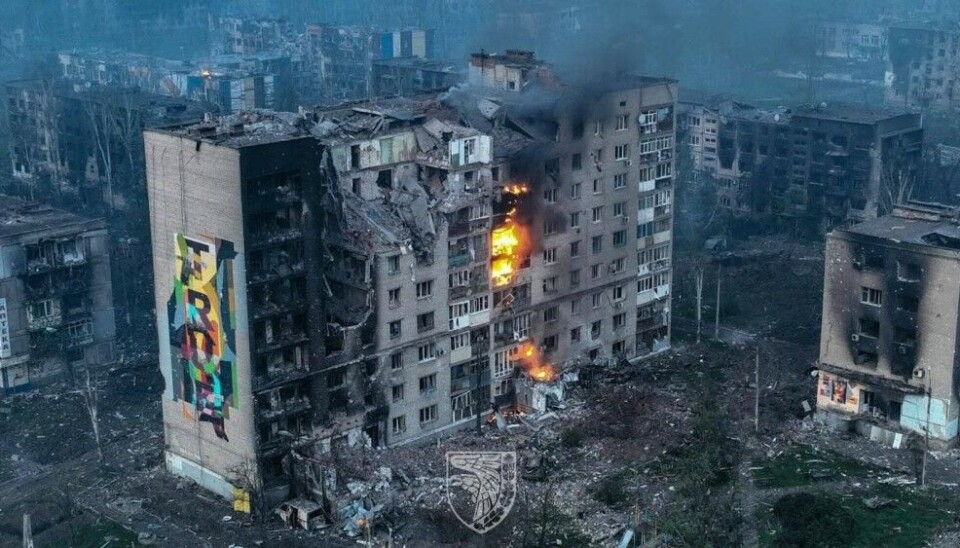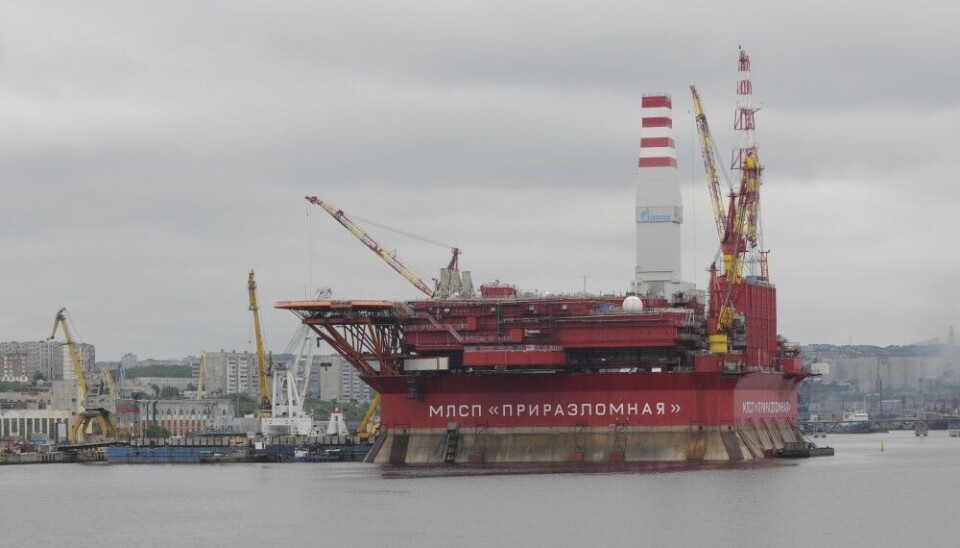
Headed by former Arkhangelsk police chief, Gazprom Neft mercenaries are fighting in Ukraine
Funded with income from Arctic oil drilling, Gazprom Neft’s newly established irregular armed group fights in frontline of Russia’s invasion forces in Bakhmut.
Russia’s destruction of Bakhmut is brutal. The once green and lively Ukrainian city is a smoking ruin. It has been the war’s longest and bloodiest battle. On Sunday, dictator Putin congratulated his soldiers on ‘liberating’ the doomed Bakhmut. Kyiv denies Russian control.
But who are the Russian soldiers on the frontline?
Not only regular military and fighters with the Wagner Group it turns out. A new investigation by BBC News Russian Service discovered that Gazprom-linked private military corporations (PMCs) take part in the battle.
Including the newly established Gazprom Neft Okhrana, which the Barents Observer reported about in February. Prime Minister Mikhail Mishustin signed the approval.
Big corporations, and oligarchs, form private military corporations not only to protect their own assets. Pleasing Putin by sending non-regular soldiers to the battlefields is another motivation. The costs are not visible on state budgets and with private mercenaries, Putin avoids calling up an unpopular mobilization. In return, the companies get government contracts and licences.
Also, contractors killed in battle don’t require state compensation to family members.
Ironically, like many shadow initiatives under the Putin regime, private armies are illegal by Russian law.
Gazprom Neft is the oil-producing subsidiary of Gazprom. The company taps oil in Siberia, including the fields in the Yamalo-Nenets and Khanty-Mansi Autonomous areas. It owns Prirazlomnoya, Russia’s only offshore oil production in the Barents Sea. In Kola Bay, Gazprom Neft conducts ship-to-ship reloading with the supertanker “Umba” which receives oil from the company’s Arctic fields. This oil is then shipped from Murmansk to markets in Asia. India for the most.
With this income, Gazprom Neft Okhrana is financed. The private paramilitary group has its headquarters in Omsk, according to Russian public business data. General director is Stanislav Bauman.
Bauman is a colonel who in 2019 was appointed acting head of the Ministry of Internal Affairs for the Arkhangelsk region.
Appearance of fighters from the group near Bakhmut has been confirmed by both Ukrainian intelligence and by Yevgeny Prigozhin, founder of the Wagner Group. Prigozhin has repeatedly criticized the Russian defense ministry and staff command, as well as other private military companies fighting around Bakhmut.
According to BBC News Russian Service, Prigozhin identified the Gazprom-linked military groups to go by the names Fakel, Potok and Redut.
“Those people who have money now think it’s an awesome topic to start, so they are multiplying. Gazprom PMC Potok, PMC Bokarev, PC Redut, one after the other,” Yevgeny Prigozhin said in an April interview posted on Telegram.
This weekend, the Telegram channel Novosti Osetii informed about a battalion chief mercenary fighting for Gazprom’s Torch PMC being killed in Ukraine, probably near Bakhmut, on May 11.
The war-mongering Wagner founder said other PMCs than his had to abandon their positions because of poor training, lack of supplies and lack of tactical-level commanders.
According to BBC, the mercenaries complained in a video that the leadership of Gazprom allegedly promised them a contract with the Ministry of Defense, but they were sent to Ukraine under the command of the Redut private military corporation.
Gazprom’s press service did not reply to questions about the case by BBC.















